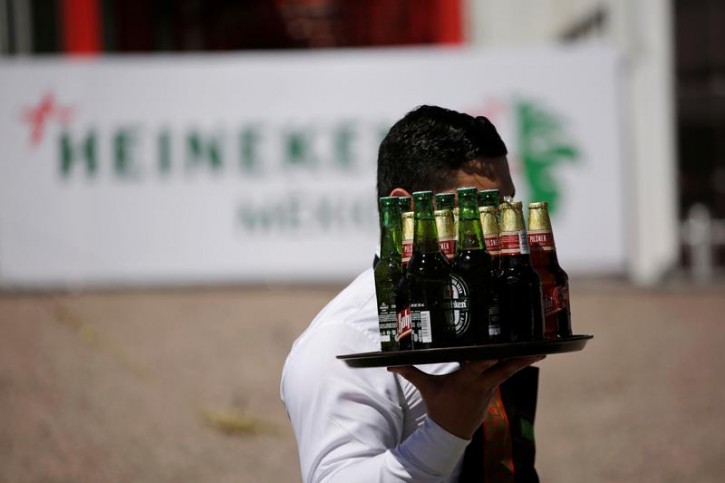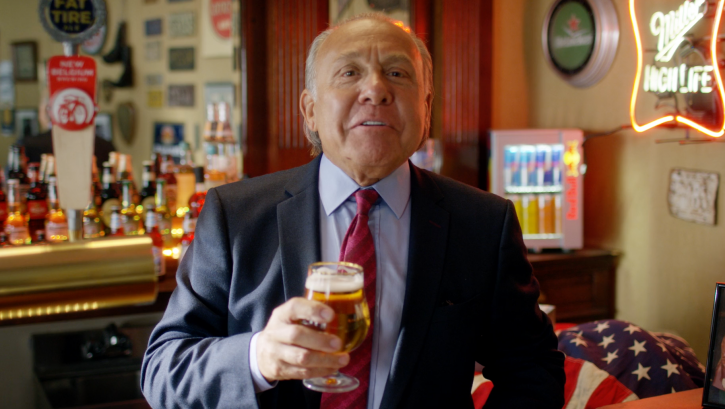
New York – With members of the Jewish community busying themselves with food-related matters after Pesach, rushing out to restock their bare pantries, standing on lengthy lines for fresh pizza and sharing photos of their shlissel challahs with friends and followers, it was an unusual culinary item that stole the post-holiday spotlight this year: beer.
Just hours after Havdala had been made, a Star-K bulletin made the rounds on social media, advising readers that since most of the beer in the greater New York City area was supplied by Manhattan Beer Distributors, a Jewish-owned company that had not arranged a “proper” sale of its chometz, all Manhattan Beer beverages should be avoided until late May or early June.
The list specified 101 beer brands, including popular labels such as Heineken, Fosters, Guinness and Samuel Adams, with the letter covering the five boroughs, Long Island, Westchester, Rockland, Putnam, Duchess, Orange, Sullivan and Delaware counties.
The Star-K bulletin was followed up by a letter from OK Kosher Certification, assuring the public that Manhattan Beer had sold its beer in accordance with Jewish law and expressing surprise that anyone would doubt the validity of the sale which had been based on halachic rulings of Rav Moshe Feinstein and several other prominent gedolim.
Hoping to shed further light on the matter, radio personality Zev Brenner hosted representatives of both the Star K and the OK on his Motzei Shabbos Talkline radio program, devoting well over half an hour to the topic.
The problem, as described by Rabbi Kalman Weinfeld, rabbinic coordinator of food services at the OK, first came to light when Rabbi Don Yoel Levy advised congregants during his Shabbos Hagadol drasha that much of the beer distributed in the New York City area comes from Manhattan Beer, whose owner Simon Bergson is Jewish.
Speaking to Rabbi Nosson Sternberg, a friend who had high level connections at Manhattan Beer, Rabbi Weinfeld learned that numerous attempts in previous years to persuade Bergson to sell his chometz over Pesach had failed. Undaunted Rabbi Weinfeld persevered, scoring a personal meeting with the difficult to reach CEO and getting him to sign a contract that transferred ownership at all five of Manhattan Beer’s facilities to a non-Jewish executive within the company for the duration of Pesach.
While the sale complied with the OK’s halachic guidelines, the Star K felt that it relied on leniencies that were not in keeping with its own standards for the establishments and business that it certifies, noted Dr. Avrum Pollak, president of the Baltimore-based kashrus agency.
“A business that sells their chometz but they continue to do business as usual on Pesach, they don’t sequester the chometz … if it’s just something that they sold and they continue doing business as they normally did, it’s not the type of mechira that the Star K has ever accepted,” said Dr. Pollak.

The sale as performed by the OK would pass muster with many others, even if it was not in keeping with the Star K’s guidelines, noted Dr. Pollak who praised Rabbi Weinfeld for his efforts.
“The fact that they were able to convince him to sell the chometz certainly alleviated a very serious problem … that many, many people not knowingly buying beer would at least have some type of mechira that was done and there are some very valid poskim on which to rely,” said Dr. Pollak.
Dr. Pollak also dispelled the notion that there was any animosity between the two kashrus organizations over the beer brouhaha.
“It was a little disconcerting to see some of the blogs and some of the publications kind of hinting at the fact that maybe this was an argument or a fight over turf between different kashrus organizations,” said Dr. Pollak. “Nothing but that, and anyone expecting to see sparks fly during this conversation is going to be disappointed. Over and over we greatly appreciate what the OK and Rabbi Weinfeld have done.”
Rabbi Weinfeld said that he fielded numerous calls from rabbonim in various Jewish communities before Shabbos who wanted to ascertain the details of the mechira in order to guide their own congregants in the proper direction. He emphasized that once he explained the nuances of the sale process to Bergson and his team, they were very much on board with the process, with Bergson taking a pre-Pesach call from one local rabbi who had unsuccessfully tried to reach him for years.
“Before the rabbi even said anything he said ‘If you want to tell me about the chometz, I did it yesterday already,’” Said Rabbi Weinfeld. “He was so proud of himself that he was doing something according to the Jewish law and he did it very seriously.”
There were many in the Jewish community who felt comfortable with the OK chometz sale, said Rabbi Weinfeld.
“This is why this past Friday night many, many communities in the Chasidishe Williamsburg community, Borough Park and others were drinking a lot of beer at a lot of shalom zachors, relying on Rabbi Weinfeld and the OK Kosher mechira,” said Rabbi Weinfeld.
One caller to the show disagreed with that claim, saying that he had been at the main Satmar synagogue in Williamsburg Friday night where signs hung saying that all beer being served had been privately owned over Pesach by Jews who had sold their chometz, and that beer should not be purchased from stores that do not sell their own chometz at this time.
Why the problem had arisen only this year, when multiple attempts had been previously made to arrange the sale of Manhattan Beer’s chometz remains a mystery. Rabbi Sternberg agreed that the question was a solid one but that he could not speak for his contact, an Orthodox Jew who had served as Manhattan Beer’s chief financial officer.
“I can’t answer for him but I don’t think that the general public knew that this company was owned by Jews and how dominant he was in distributing beer in New York City and beyond,” said Rabbi Sternberg.
Dr. Pollak acknowledged that this issue could have been a problem for years.
The Star K has long warned the public that it is forbidden to buy chometz that had been in the possession of a Jewish owner over Pesach, advising people to ask their rabbis where they could safely buy food after the holiday. But the details of the licensing system for beer sales in both New York and Maryland only came to light recently, explained Dr. Pollak.
“It seems that only one individual is given the right to distribute certain brands of beer,” said Dr. Pollak. “When it was determined that the main distributor, Manhattan Beer, is a Jewish owned company, alarm bells sounded … In the past years people were just not aware of it.”
As reported by Vos Iz Neias
